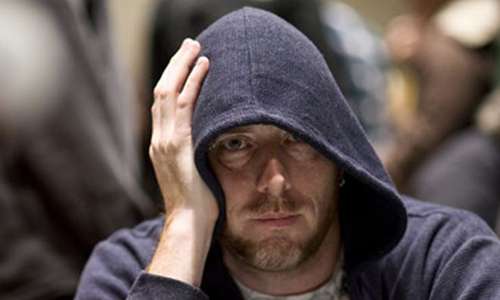Appeal Denied, Borgata Prevails in Counterfeit-Chip Class Action Lawsuit
One of the final story lines connected to the bizarre and long-running tale of convicted cheater Christian Lusardi’s insertion of counterfeit chips into an early event in the 2014 Borgata Winter Poker Open has ended. On Monday, a New Jersey appellate court denied the continuing attempt of three players in that event to challenge the arbitrary decision by New Jersey’s Division of Gaming Enforcement [DGE] in redistributing the remaining prize money in that event once Lusardi’s cheating scheme was uncovered.
Multiple lawsuits were launched by other participants in the January 2014 tourney, each generally alleging that the Borgata was negligent in not discovering the hundreds of fake chips inserted by Lusardi earlier in the event. The ruling released on Monday by a three-judge panel from the Superior Court of New Jersey’s Appellate Division wraps up the last of these cases, again upholding the DGE’s distribution plan for remaining prize money created in April of 2014.

Christian Lusardi was convicted and sentenced to five years in prison for inserting counterfeit chips into a Borgata poker tournament.
In this appellate ruling, event participants Jacob Musterel, Farid Vaghefi, and Steven Celeste were denied any additional reward. The appellate panel upheld a lower-court ruling, which also went the Borgata’s way. Arguments in the appellate case were heard in late May, before the panel issued its ruling on Monday.
Of these three plaintiffs, only Steven Celeste was one of the final 27 players in the event who still had chips when play was suspended, then cancelled. These 27 players very arguably suffered a negative financial financial impact when the DGE ordered that hundreds of thousands of dollars of the remaining prize money instead be returned to initial entrants of the event, despite strong mathematical evidence that most of the payers who had their entries refunded never played against Lusardi or came into contact with his fake chips before being eliminated from play.
The DGE’s ruling also absolved the Borgata of any claims of negligence, despite an apparent paucity of video security in the poker tournament area. Lusardi’s counterfeit chips were in play for nearly two full days of action, despite numerous complaints from other players. Only after Lusardi attempted to flush hundreds more of the fake chips down the toilet at another Atlantic City casino, Harrah’s, damaging hotel plumbing there, and after Harrah’s notified the Borgata of the fake chips, was the Borgata event halted.
Despite all that, the Borgata prevailed against all challenges in this home-turf legal war. The class action filed by Musterel, Vaghefi and Celeste, including complaints against both the DGE and the Borgata, and they were combined for purposes of the appellate ruling. The plaintiffs alleged that the DGE’s ruling was “arbitrary and capricious,” ad also complained that no hearing was held.
As for the complaint against the Borgata, plaintiffs appealed the lower-court summary judgment issued in favor of the Borgata. The players’ initial complaint against Borgata alleged “negligence, consumer fraud, breach of contract, promissory estoppel, unjust enrichment and breach of the implied covenant of good faith and fair dealing for negligently permitting a player to introduce counterfeit chips into the tournament, tainting the games and depriving plaintiffs of a fair opportunity to win the tournament prize money as promised.”
This lawsuit was separate from another class-action brought by six others among the final 27 players, which was also dismissed in 2014. That case, involving plaintiffs Duane Haughton, Michael Sneideman, Cuong C. Tran, Cuong V. Phung, Alvin Vatanavan and Christopher Korres, was not appealed. Celeste was the only one of this case’s three plaintiffs who was also among the final 27 players, who each received a $19,383 payout, much less than the expected value of reaching the final 27, despite not having cheated themselves.
Musterel and Vaghefi, the other two plaintiffs, were not among the final 27 players. Instead, their ongoing claims were based on the premise that the Borgata’s alleged lax security denied them a “fair” chance in the event. Both Musterel and Vaghefi fired multiple bullets in the re-entry event and received partial refunds.
In upholding the earlier ruling, the three-judge panel wrote, in part:
“Even assuming plaintiffs could prove their contract claims, the only conceivable damages available to them would be restitution, returning them to the condition they occupied before the contract was executed. [] Expectancy damages would be too speculative to award, and punitive damages would impermissibly intrude upon the [DGE]’s exclusive authority over sanctions. Because plaintiffs have already been afforded restitution by the Director, the administrative proceeding has provided them an adequate remedy to vindicate their damage claims against Borgata, and the motion judge was correct to enter summary
judgment dismissing their Law Division complaint.“Although plaintiffs’ disappointing experience in this aborted tournament is regrettable, the [DGE]’s response to the situation was fair, and plaintiffs present no legal basis for their claims seeking further enhancement of their recovery.
“Affirmed as to both appeals.”
Lusardi, who purchased the counterfeit chips via a prominent Chinese wholesale-goods site, continues to serve a five-year prison sentence for the scheme.




















COMMENTS